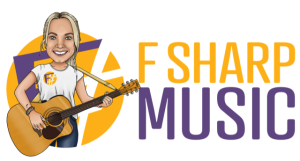
Fiona Sharp founded F Sharp Music in 2013. It provides individually designed music sessions for people of all ages and disabilities. F Sharp Music are one of our Delivery Partners. Here, we chat to Fiona about her work.
When did your love of music start, and how?
Music was very much part of my upbringing, and I was always interested in it.
As a teenager I was very keen on drama and music and I was a member of the National Youth Music Theatre as well as local drama groups in Edinburgh.
Classical music has always been a big part of my life. I learned classical violin from the age of seven, and piano when I was three thanks to my mum being a piano teacher. Singing was also a big part of my childhood.
What gave you the idea to use music as therapy?
In my final year at school, I ended up shadowing the music therapist at The Royal Blind School in Edinburgh. That’s really what inspired me to go down this path and I ended up studying music down in London: it was a general music degree, but I was able to do a course in music therapy, and that inspired me further to look at taking it forward as a career.
I moved back to up Scotland, to Fife, and I ended up working as a Music Practitioner for a charity called Sense Scotland. I worked in their residential services across the east coast of Scotland providing one-to-one and group music sessions.
At that time, they predominantly supported people who are Deafblind. The majority of clients I worked with at that time had been in long-stay hospitals most of their lives, and had only recently moved into the community. I absolutely loved this work, mainly because the participants communication skills were fairly nonexistent at that stage, and I found that music and vibration really helped develop those skills. It was amazing to see the developments made through music however big or small they were. Following this I ended up doing a diploma in Deafblind Studies.
I worked with Sense Scotland for over six years and loved it. But by that point I was nearly 30 and felt I needed to move on and explore other opportunities within the sector. So that’s when I decided to take the big jump and set up F-Sharp Music.
So you started F Sharp in 2013: how has it developed since then?
It’s grown a huge amount, and I have to admit the growth in the business has been partly thanks to the pandemic. Before the pandemic I was working entirely on my own. Due to the high demand in music sessions over the past two years I have had to bring in four music specialists to help take on referrals. This has also meant that we are now covering many regions of Scotland rather than just Fife and Edinburgh as well as supporting people with a wide range of learning and physical disabilities, and all ages.
Over the past two years we have also set up an online shop selling F Sharp Music resources, sensory instruments and merchandise. We have a YouTube channel and social media pages.
What sorts of things do you do?
It very much depends on the person as we structure our music sessions around the individual we are supporting. We can do something as basic as sing songs together or interact with some percussive instruments, or we have some participants that want to learn to play an instrument, record themselves or be in a band.
We can use the conventional way of learning to play an instrument and learning to read music. But also, for those participants who may struggle to understand music notation, we use a system called Figurenotes. This is a system that uses colour and shape to help you learn to read music. So, for example, if you’re learning to play the piano or the guitar, you put stickers on your instrument – in different shapes and colours – and then the music is also portrayed in the same range of colours and the shapes, and you literally play what you see. So straightaway, you can play a song.
It was devised in Helsinki by two music teachers at the Resonaari Music Centre, who provide music lessons for children and adults with learning and physical disabilities. Originally Figurenotes was designed for people on the Autistic Spectrum, but it is now a music notation system which anyone can access.
The organisation Drake Music Scotland brought the concept over to Scotland in the mid 2000s, and it has just exploded as a music notation system throughout Scotland and the rest of the UK. Schools use it across the country and the BBC’s Ten Pieces school program also has adopted the system. It’s an amazing concept which works in three stages allowing the musician to eventually learn conventional music notation.
What are some of the ways that music can help people, beyond simply being an enjoyable experience?
There are many, many ways music can help people. It obviously depends on the person and their specific needs. For example, for people with more profound disabilities, who may have difficulties with communication, music can really help develop those skills through call and response work and choice making. You can also build up a conversation through instrumental playing.
For people who may have anxiety or depression, music can really help with self-expression and creativity as well as helping to build up confidence and social skills.
It can also develop counting skills, motor skills, listening skills and concentration. If you use Figurenotes notation system, you’ve got colour matching and pattern recognition as well as counting and rhythm.
Music can also just be a ‘feel-good’ activity.
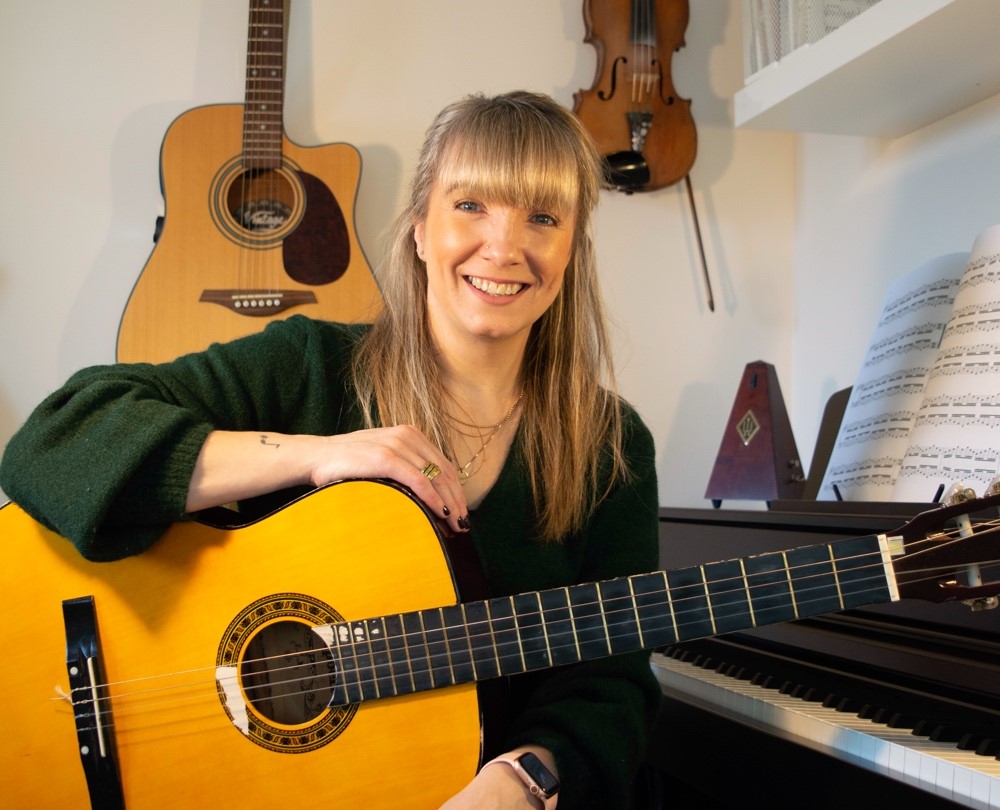
Above: Fiona Sharp
Where do you want to take F Sharp Music in the near future?
Well here’s the thing, when I was at school I was told by my careers advisor that music to me was a hobby not a talent and I should consider working in a shop instead of studying music…I didn’t listen to her! When I did go and study music at university I was then told that being a music specialist/therapist would always be a part time job as it’s very difficult to get work in this field. Somehow over the past 17 years I have built up my own music practice and now have a team of amazing music specialists covering large parts of the country, which I never thought would be possible given what I was told in the past.
I suppose that’s a lesson for all of us: go with your gut instinct and your love and passion for what you enjoy doing, and don’t let anyone stop you or put you off achieving your dreams. With that said, I can only wish for a future for F Sharp Music which is as successful as it has been over the past 11 years. I am always looking at ways of expanding the business and bringing in new ideas and interests. Our latest project which we are aiming to start launching next year is our Music Wellness sessions and resources.
This will hopefully include sound therapy/sound baths, music relaxation, sensory music and nutrition and wellbeing which is another area I am very passionate about.
Sound therapy/sound bathing uses different tones and pitches to help relaxation. The person is in a comfortable and relaxed position either lying down or in a comfortable chair. The sound therapist will then play a selection of instruments (crystal singing bowls, Tibetan singing bowls, ocean drums, rain sticks, gongs, finger cymbals) which produce very pure tones and relaxing sounds, and can completely relax you and help you process some of the emotions you might be experiencing. For some people it can put them into a meditative, trance state. I actually tried it myself a few weeks ago, and it was unbelievable. Until you experience it, you can’t really explain it, but you feel so relaxed at the end of the session, as if you’re walking on air. This is a great activity for people who may have anxiety, depression, Autism, or sleep insomnia. I personally think it’s a wonderful thing to experience and I very much want to introduce it as an activity to F Sharp Music over the next year.
5 skills that can be developed through music
Motor skills – by learning to play an instrument.
Language and communication – both through singing and by stimulating the necessary parts of the brain.
Collaboration skills – by singing and playing with other people.
Maths and counting – from beats in a bar to patterns within a piece, numbers are a fundamental component of music.
Self-expression and creativity – music is the perfect medium in which to explore and experiment.
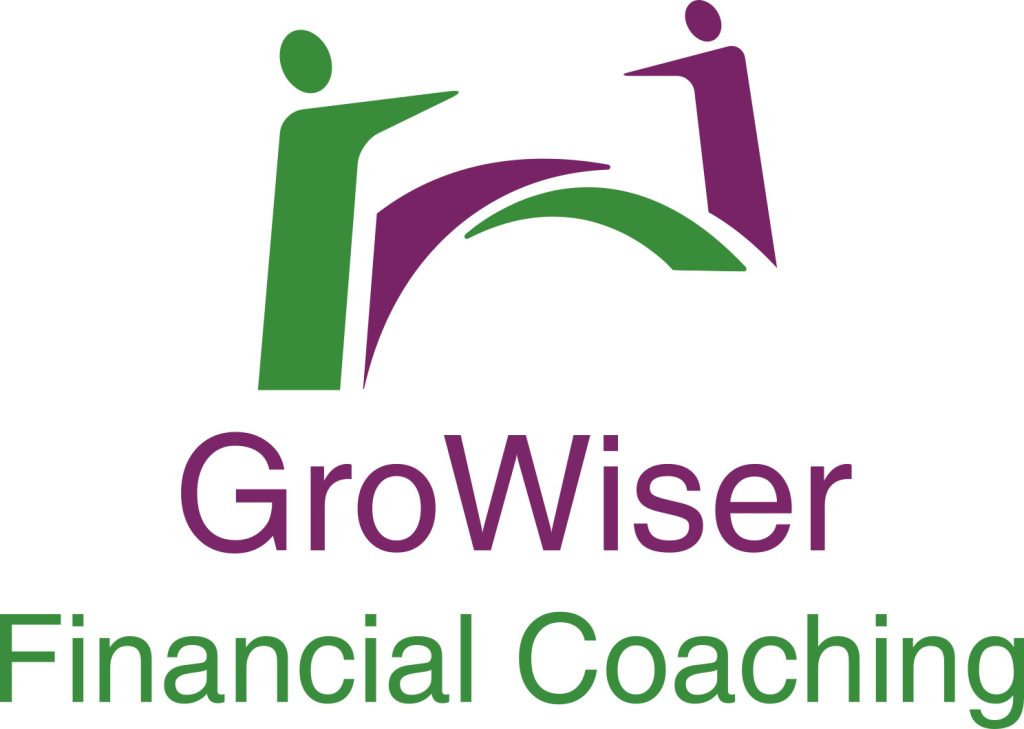
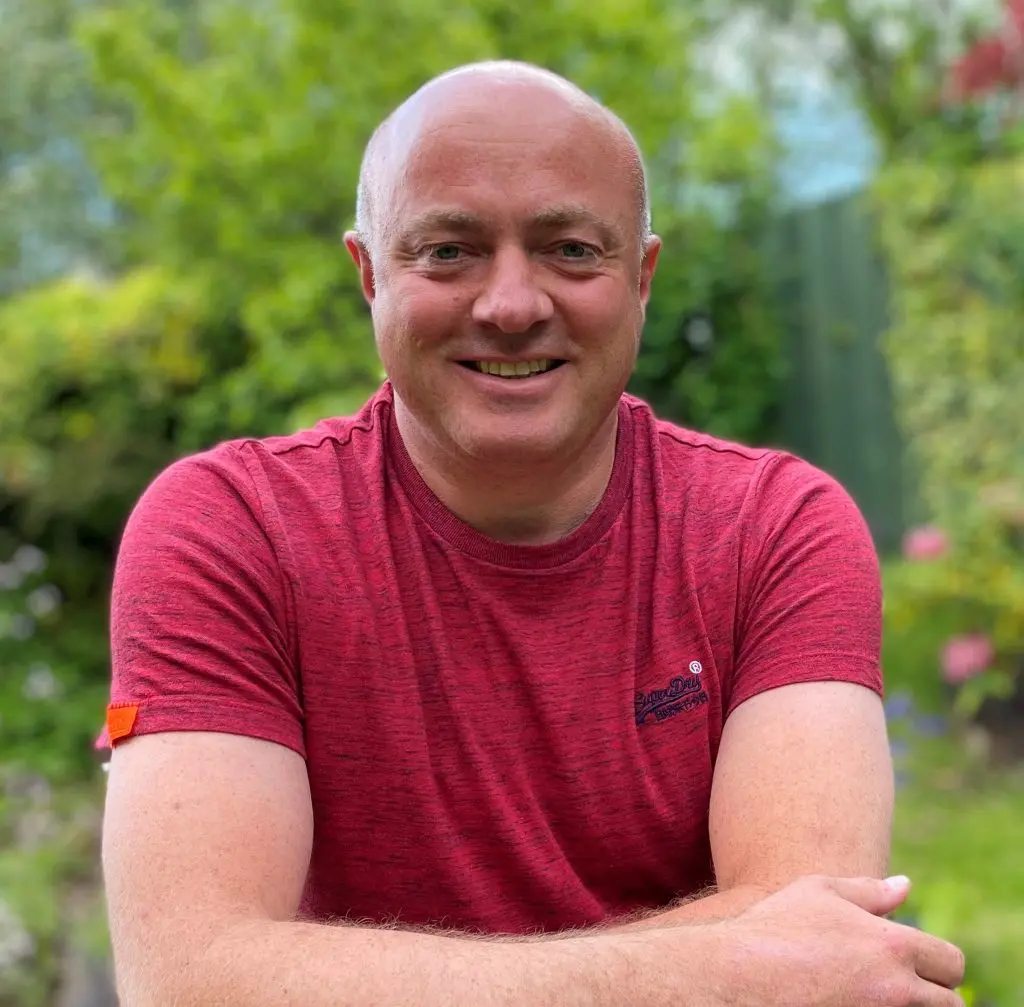
At Future Pathways we work with many different services that help the people we work with in many different ways. One of these services is GroWiser Financial Coaching, run by Graham Wells. Graham helps people to learn new habits to help them look after their money.
Graham Wells is a financial coach. Financial coaching is about helping people to change their feelings or thoughts about money.
Graham says: “Often when people seek support, they worry that they will come across as being stupid. But it is not about telling people what they have done wrong or telling them what they should do differently.” Instead, Graham explains, it is about helping them to look after their money in a better way.
There are two sides to what Graham does.
One side is helping people learn more about how money works. This might be things like how to build an emergency fund or how to keep track of money. He helps people to work out what is important. And this helps people to develop better money habits.
The other side of what Graham does is helping people to change the way they behave in relation to money. Sometimes Graham gives people tasks. For example, making lists of where their money comes from and where it goes.
People can feel much better when they have control of their money.
Graham’s 5 steps
Graham’s 5 steps for looking after your money.
Think about how you spend.
Spend your time and money in line with your values and what is important to you. Do not forget your future self.
Get rid of your debt.
Find the best way for using and repaying debt. Know the difference between ‘good’ and ‘bad’ debt.
Keep your loved ones in mind.
Prepare for things you do not expect. Build peace of mind for you and your loved ones
Nurture your wealth.
‘Wealthy’ and ‘rich’ are not the same. Wealth means looking after your whole life, not just your money.
Create your future.
Make a plan for how you would like to spend your time as you get older. Do not leave it to others to define your life path.
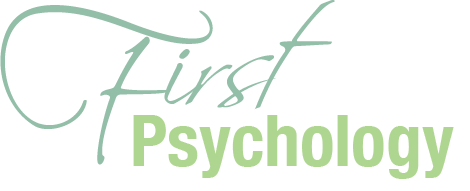
Professor Ewan Gillon is Clinical Director of First Psychology. Formed in 2009, First Psychology now offers many different psychology and counselling services, for a wide range of clients. It operates from 13 consulting venues across Scotland and northern England, with nearly 50 rooms and 150 practitioners.
How did First Psychology begin?
It evolved from my own counselling and therapy practice, which I started around 2001. The ethos behind it was very much to offer a service that was very client-centred, and able to understand the needs of people in different situations in their lives. I was very keen for it to be very transparent, to provide lots of information, and to not be too diagnostic and or expert-led.
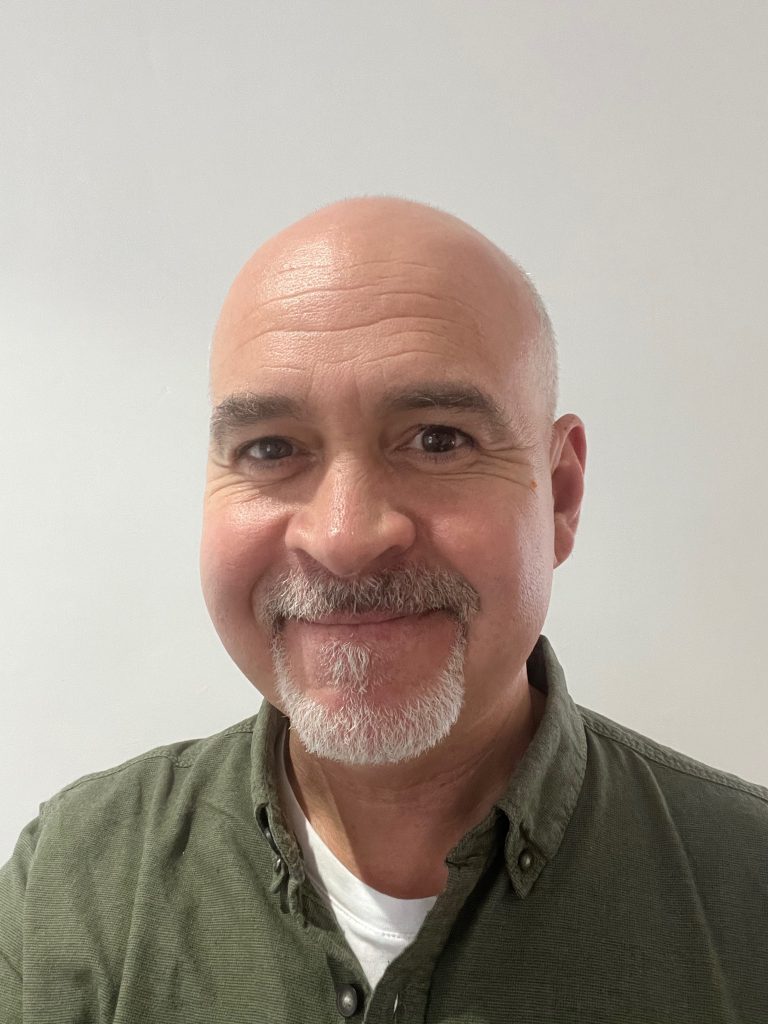
“I wanted to allow each client to find what they need, so that I could offer them different types of therapies and different approaches.”
Initially I worked a lot with men – trying to encourage men to consider therapy and to engage more with their mental health. That grew and evolved to eventually become First Psychology, with the same kind of ethos, philosophy and approach. It was initially based in Edinburgh; since then, we’ve expanded throughout Scotland, and are now moving into northern England.
We still very much focus on working with clients and trying to find the best things for clients. Our philosophy is what we call ‘pluralistic’: that means we’ve got different types of practitioners in our organisation. We’re very much a therapy organisation – people from counselling and psychotherapy backgrounds, people from cognitive behavioural therapy and other specialist types of therapy, and also some psychologists. And what we try and do is find the right clinician for every client. We’ve got a services team who help our clients to find what they need.
We’re a fairly broad group of people now: we have around 150 clinicians working across our organisation. We try to take advantage of that by having lots of training in–house. We’ve got a lot of professional and clinical leadership in–house, in areas such as children and families, couples, and trauma.
How do you work out what type of therapy is going to be right for each person?
We start by speaking to the person themselves, or to someone who knows them well. People want different things. Some people want to talk about their experiences, and just have a place to feel heard, and to be valued and validated. Others are looking for techniques and strategies to help them manage particular difficult experiences they might have. So, we talk to the person themselves, and they are the decision–maker.
Then we can say, ‘These are the people we have available who do the kind of things that you are looking for’, and we might suggest that the person meets with a particular clinician. In that initial session the clinician can figure out whether what they do and how they work is going to be helpful for the client.
“The client gets a chance to decide whether they like the person, and whether they feel that they can talk to them and they’re going to meet their needs.”
It’s very much a discussion about the next steps, rather than starting anything. You might establish what that particular clinician can offer, and agree a plan or a process of therapy.
If it doesn’t work in that first session – for example, if the clinician feels that a different approach might be better, or that the client needs something other than therapy – then we help the client find that other thing themselves. We might advise the client, ‘This is where I think you should go’, or we might refer them to someone else at First Psychology.
Is that approach – of having lots of different types of services available – quite unusual?
Yes, it is. What you tend to find is that a lot of services are either clinician–led or theory-led. Either the clinician has got a particular interest, or there’s a particular philosophy that the people who run the service believe in, and that’s basically what you get. Whereas, we think that clients themselves should be making decisions about what they need, in discussion with clinicians.
It’s not the client simply saying ‘I want that’ and getting it. If someone wants something that we think is not actually going to be helpful to that person, or it’s not something that we feel can offer, we’d have a conversation.
So certainly we’re quite unusual. I think that’s why we’ve grown over the years: we’ve innovated and changed in response to demands from people.
You said that earlier in your career you were focused on getting men into therapy. Do you think that there’s still some stigma about that, or find that a lot of people – not just men – are resistant to the idea?
Yes, I think that’s absolutely the case. And I think that there are different types of experiences people have, and different reasons why they might feel apprehensive or unsure about whether therapy is something they want to pursue. Obviously, people may have had bad experiences with authority in the past, and they might in some ways imagine that therapy involves authority.
“There may be some stigma around speaking to people about your problems: people feeling that they may be judged, or that other people might see them as not being able to cope, or something like that.”
And, to be honest, there are just natural anxieties about entering into something like therapy, which may feel very unknown and very uncertain because it’s not something you do every day. So, it’s naturally an activity that is going to be hard for people to start. It’s not an easy thing to do.
How do you try to address these sorts of obstacles?
Over the years we’ve tried different ways of being as open as we can to different types of experiences that people have had, and really thinking through what it is like for someone coming for therapy. In our service team we have an ‘every contact counts’ philosophy. So, if someone phones up but they don’t book a session, we see that as a good thing, not a bad thing. We want to help. And if someone says, ‘Look, I just want information’, that’s fine. We’re not trying to force anyone to do anything, because we want to help people begin in their own minds to break down the barriers.
Not everyone will come to therapy, not everyone is going to be helped by therapy. I mean, it’s a process that I think generally can be pretty helpful, but there may be other things that are equally helpful to someone in a particular set of circumstances. So, again, it comes back to this philosophy of being very client–centred, and wanting to help people find what they need for themselves.
“It’s about understanding that coming for therapy is difficult.”
So we provide information and support, we answer questions, we’re very open and transparent, we offer sessions at different times in the day in different locations, we offer telephone and remote sessions… all of these things making it as possible as it can be for different people to access the service in the way that works for them.
In many ways your philosophy, values and approach are all similar to those of Future Pathways.
Yes, I think so. I think we share a real emphasis on client–centeredness in our way of working.
Obviously, one difference is that First Psychology is a business. We’re independent: we function and we make our living from doing therapy, which is a good thing because it enables us to do it in the way that we really believe in, rather than being beholden to other organisations and so on. The downside, of course, is that we have to charge, and that’s something that we try our best to manage.
But, I certainly think, having worked with Future Pathways, that there is a lot of overlap in the way that we work. Ultimately, I think we’ve both got the same thing at heart, which is that it matters to us that people are helped and given the support that they themselves feel is helpful to them, rather than imposing something on them.
“For people who have had difficult experiences in their lives, having power and control – and feeling that they are valued and listened to – is of immense importance.”
And that is absolutely how we would see every single client who comes through our door.
We’d like to develop our relationship with Future Pathways, and we can see the opportunity for that. And obviously, as we get to know each other better, we’re really responsive and open to any feedback and support that we get from Future Pathways and the people they support. It’s a relationship that’s growing, and that I hope will continue to grow.


Graham Wells is a financial coach and the founder of GroWiser. He started his career in the ‘regulated advice’ part of the financial sector, but then moved away from the sale of financial products and into coaching. In that role he helps people to develop the beliefs and behaviours that will enable them to build a better financial future.
In essence, what is financial coaching?
It’s not somebody telling you what to do with your money.
It’s all about behavioural change, and recognising emotions and thought patterns that don’t serve us well. The key thing is the concept of empowerment, and working in a way that’s non–judgmental. I think that often when people seek support, they’re fearful that they will not be knowledgeable enough, or that they’ll come across as being stupid. But working with a financial coach is an absolutely non–judgmental process. It’s about empowerment of the individual, not about bamboozling people with technical jargon or telling people what they’ve done wrong and what they should do differently in the future.
How did you first get involved in financial services?
When I left school, aged 17, I had no idea what I wanted to do, so I got a job in the local bank until I decided what I wanted to do. I was still there 23 years later. During part of that time I trained as a financial advisor within the bank, including gaining the regulated Diploma in Financial Services, and I would advise customers on investments, pensions and insurance, that type of thing.
This is going back more than 20 years ago now. The financial services industry was still really quite sales–orientated. I stayed in that environment for about six years, and then realised, ‘There’s something just not suited to me here, there’s something not right about this’. So I moved into training.
I spent several years training financial advisors, and also learning about how people learn – the ‘wider’ part of learning and development – which I found really fascinating. Eventually I found myself in a supervisory role: I would accompany wealth managers when they went out to see clients. So that gave me exposure to a wide range of different types of advisor and different types of clients.
The combination of that experience as an advisor, a trainer and a supervisor really gave me a deep understanding of how limited the whole financial services sector is. What I mean by that is that less than 10% of the population have a financial advisor, and it tends to be only the wealthiest 10%. Also, it often creates a situation where clients become dependent on their advisor to tell them what to do and how to look after their money.
I learned that while it can be good to give people knowledge, the other half of the battle is application of that knowledge and how people change their behaviours and their habits.
And that’s what led me to think: ‘Wouldn’t it be nice if I could blend learning and development somehow with technical financial knowledge, to actually help people who need it the most?’ So about eight years ago I trained as a financial coach. At that time, to my knowledge, there was only one other financial coach in the whole of the UK, based down in Brighton. Since then it’s accelerated at quite some pace.
“Working with a financial coach is an absolutely non–judgmental process. It’s about empowerment of the individual.”
What are the main things that financial coaching covers?
I focus on both the day–to–day practicalities of money and also the emotions that people have around their money, and the behaviours that that leads to.
The practicalities of money might just be the basics, like setting up an emergency fund and budgeting, and working out what’s important. What things give you most satisfaction in return for the money you spend on them? This helps people to develop better financial habits. Or it could be helping people to understand their pensions, for example, or learning how to invest money for the first time.
So that’s all quite practical. The other side is behavioural. Sometimes the real work here is not even to do with money: it’s helping people to recognise how they build new habits and new mindsets. This can also touch on the emotions of money. A lot of our financial habits and behaviours stem right back to childhood. There’s one study that says most of our financial attitudes are formed by age seven, so sometimes there can be quite a lot to unpack for people there. They may have beliefs like – you’ve heard some of the famous phrases – ‘money is the root of all evil’, or ‘money doesn’t grow on trees’, or ‘money makes the world go round’. These sort of belief patterns do not always serve people in the best way.
What inspires people to look for financial coaching?
More and more people are beginning to search for this type of help. Some clients that come directly to me haven’t heard of the term ‘financial coaching’, but they’re typing similar things into Google and finding me that way. The starting point is that they’re recognising that their financial behaviours are not serving them well.
Other people that get in touch with me are working with a financial advisor but something doesn’t feel quite right about it. They want to feel more empowered and more in control, or they maybe feel that they’re paying an awful lot in fees and they’re not quite sure what the value is that they’re getting from that.
“I learned that while it can be good to give people knowledge, the other half of the battle is application of that knowledge and how people change their behaviours and their habits.”
What sorts of things do you usually help those people with?
The key point there really is recognising that the coaching element is all about empowering individuals, and it’s very much forward looking. (I guess that fits well with the name ‘Future Pathways,’ doesn’t it?) The way in which I work is not about telling people what to do or advising them. So it lends itself well to the ethos of other partners that work with Future Pathways. We have a very supportive, empowering way of working but – importantly – it’s not therapy. It’s not looking backwards and trying to fix problems from the past. It’s very much about looking to the future, and I think that way of working resonated for certain people Future Pathways are working with.
A large part of it can actually just be day–to–day money management. To be honest, that’s probably something that most of the population would benefit from. It’s about understanding day–to–day budgeting. Most of the work happens outside of the sessions. I give people homework tasks, like listing their various sources of income and also listing where the money goes. That can be a real eye opener. Some people find that they actually had no idea how much they had coming in or going out.
And that exercise alone can be so illuminating: it’s enough to raise awareness and change behaviours, to make people feel motivated to improve things.
An awful lot of people that have built up pension benefits over the years are unaware of this – they just don’t know that it’s there. So that can be quite a source of reassurance just to know that something is there. For others it can be thinking about more effective ways to repay debt, and for others it can be just exploring a little bit more about where their thoughts and feelings come from around money, particularly if they are in the process for the Redress Scheme. The thought of receiving a large lump sum of money that they’re not used to can be really upsetting. So reassurance around how they might approach that decision making process.
There must be real emotional benefits for people after they’ve got more in control of their finances?
Absolutely, and I know this from personal experience. Even though I worked in the bank, nobody there taught me how to look after my money, so I was perpetually in debt right through my twenties. And the feeling of relief after finding a way out of that was quite remarkable. So imagine people in that position through their twenties, thirties and forties, and even into their fifties… the sense of relief and finding a way out of that is tremendous.
Graham’s 5-step approach for financial wellness
Savour your spending.
Be intentional with how you spend your time and money. Spend in line with your values and don’t forget your future self.
Protect the people around you.
Prepare for the unexpected and build peace of mind for you and your loved ones.
Eliminate your debt.
Find the most effective strategy for using and repaying debt. Know the difference between ‘good’ and ‘bad’ debt.
Nurture your wealth.
Realise that to be ‘wealthy’ is different to being ‘rich’ and includes looking after your whole life, not just your money.
Design your future.
Be intentional and create a plan for how you’d like to spend your time as you get older. Don’t leave it to others to define your life path.
Check out our other Meet the Partner interviews:
Centred
Working across the Highlands, Centred support people with their mental health, in their own homes and in the Recovery Centre in Inverness. Read more here.
Dan Ross
Discover how Dan Ross helps people to reframe their thinking and find new perspectives on challenges. Read more here.
Sarah Smith at Lightbulb
We chat to Sarah Smith, founder of lightbulb.coach, to discover more about how she helps people to build their confidence and self esteem. Read more here.
Cellfeld
Cellfield help people people to improve their reading skills and are one of our support providers. Read more here.
Book Whisperers
Find out more about The Book Whisperers, a community of people that helps writers of all kinds to self-publish their work. Read more here.
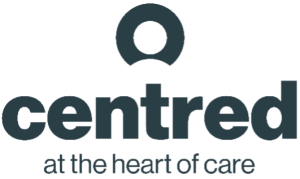
Our latest Meet the Partner series continues with June Jeffrey, Head of Health and Social Care Community Services at Centred. With around 150 staff and working across the entire Highland region, the charity helps people with mental ill-health who live in their own homes and in Centred’s Recovery Centre in Inverness.
What does Centred do, and what is its ethos?
We work with adults who are experiencing mental ill-health and, in some cases, additional issues that impact on their ability to live a meaningful and fulfilling lives. We are a progressive charity, and continue to maintain a position at the leading edge of mental health recovery within the Highlands of Scotland.
We work within the Recovery ethos, which supports people to live productive lives even if symptoms persist. We have a 23-bed Recovery Centre in Inverness, which provides support to supported people in 12 self-contained flats and 11 single rooms. The Recovery Centre was the first facility of this kind in Scotland.
In the community we provide Support and Care at Home services to people living in their own homes within local environs from Inverness, Invergordon, Lochaber and Caithness. Within the Inverness and Easter Ross services we also facilitate supported accommodation services covering 24 hours each day 7 days each week.
How did Centred get started?
It was founded as Birchwood Highland 1987, to support the closure of Craig Dunain – one of the old-fashioned asylums outside of Inverness. The Community Care Act was looking to close these huge institutions located on the outskirts of towns and cities across Britain. The Not for Profit organisation was founded as a response to this government legislation. We started as a community-based service, moving people that had spent lots of their adult life – if not all of their adult life – in old-fashioned asylums, and moving them back into properties in the Inverness area where they could be supported in a more homelyand person-centred way aimed at enabling them to become part of their own communities.
We quickly realised how big the Highland area is! And how far people had travelled to Craig Dunain. When they were leaving, they wanted to go back to areas that they were more familiar with and may have some family connections. In response, we opened a service in Easter Ross, and then one in Lochaber.
We also opened Birchwood House at that time, which was set up to offer people who still needed 24-hour care and support with the added skills and knowledge provided by qualified nursing staff. The hope was that either they would later be able to move on to supported accommodation, or if not that they would be able to live there, but in a much smaller, more person-focused environment than the big institution. Birchwood House was updated and reopened in 2017 as The Recovery Centre, offering the opportunity for people to work toward their own personal goals by managing the symptoms they may be experiencing.
Now, we also work in Caithness offering both Support Services and Care at Home to people living in the County. We cover a huge area of the Highlands, but there are still a few gaps, just because of the size and geography of the Highlands. We continue to lobby for equality of access to services.
How do people come to you these days?
In Highland it’s a bit different from other areas: adult services are commissioned by NHS Highland, they are our biggest commissioners of services.
It’s usually either because someone has been or is being discharged from hospital and will need ongoing support to live as independently as possible at home. People and families come to their notice for other reasons, not necessarily just through hospital. So social work often make referrals directly.
The Highlands area is exceptionally large and sparsely populated. How does that affect the way that you work?
As a service, we have to realise that people do live quite isolated lives, and access to services is hugely challenging. Over the years, living in these communities has actually become even more of a challenge, especially right now due to the cost of living crisis. Having supported staff and people using our services through covid – further isolating people – we now face the cost of living crisis. And, of course, accessing services in the Highlands comes at an additional cost.
The cost of providing services in remote areas is not really considered by Scottish Government and therefore our commissioners.
Can technology be part of the solution, now or in the future?
It is right now. A big project at the moment is to reach out to people in the community and find ways of how to support them, whether that be on a one-to-one basis in their own home, or as part of group, or using new technology. I guess one of the positives from covid was that we all got used to communicating using Zoom and Teams and those types of things.
NHS, of course, use a lot of these technologies for appointments, especially in remote areas. However, that does have challenges about internet access and the cost of that. It’s certainly becoming a preferred way for younger people. They have their mobile phones, but a small screen can be a challenge for older people.
What projects are you currently working on?
We’ve recently opened a Discovery College, which works with people in the community. (Not necessarily people who have been commissioned for support, but people that are out there and don’t know where to go, or how to access services.)
People will be able to drop in and see who we are and what we’re about, and they can work on their own objectives. We’ll provide some learning courses that will be certificated, but over and above that there’ll be help to prevent isolation. Being able to come along and have a chat and a cup of tea with people who are peers. We have three Peer Support Workers who all have lived experience.
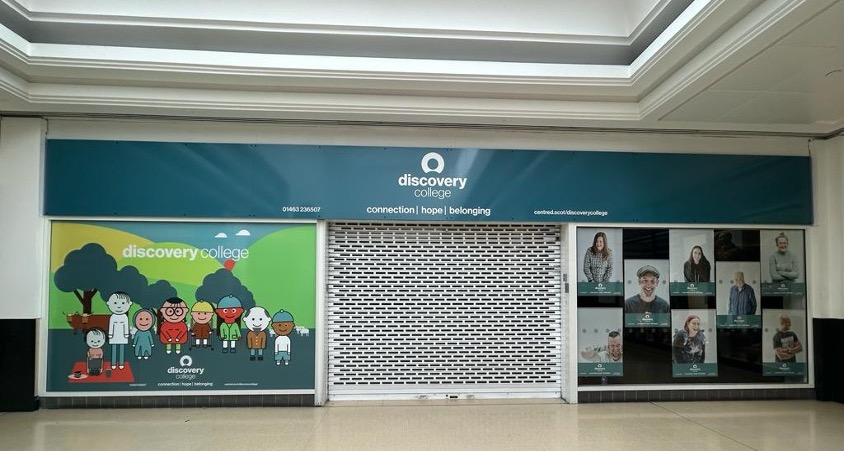
What sorts of mental health problems are experienced by the people you work with?
The full range. However, people who have been referred through NHS partners tend to live with significant mental ill-health: schizophrenia, personality disorder, bipolar…. but I think that what’s missing there are people who have anxiety and depression and just live with it. They never come to notice of services. The aim of the Discovery College is for people to reach out and find us.
Does someone’s location affect their likelihood of experiencing mental health problems: do they occur more in cities and less in rural areas, or vice versa?
It’s probably impossible to say, because people who live in cities have access to more services, so they’re more likely to come to the notice of those services.
And looking at it the other way, the outcome of people living with mental ill-health, or trauma, or any of these type of challenges, is that they have less life opportunities and therefore often end up in areas of deprivation and poverty. So, I think it works both ways.
How did your connection with Future Pathways come about?
I got a call from Future Pathways last year. You were looking for a provider to work with a particular individual that was being supported by staff based outside the Highland area. The individual was then offered a number of services in the area, and chose Centred as their preferred support provider.
The person, very fortunately, lives centrally and close to services. So we were able to provide support reasonably quickly, without anyone having to do lots of travelling.
Since then we’ve become an approved provider. There’s a lot of information that’s needed! All our staff are trained, and we’re fully insured. We’re registered with the Care Inspectorate, all our workers are SSSC-registered.
We’re really looking forward to working more with Future Pathways, and hopefully across the Highlands. Inverness is the main hub of need, but don’t forget that we are available to provide support from Caithness to Lochaber.

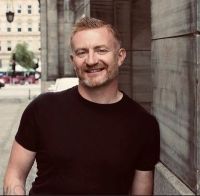
Dan Ross is a transformational life coach, helping people to move towards their goals using the resources and relationships they already have. As Dan says:
“My work is all about working in the here and now, and making a plan for the future.”
He has developed a programme called “Ignite Your Inner Warrior.” The programme is about helping people to discover their inner potential.
Previously Dan was a counsellor, working in crisis settings. This gave him a wealth of experience of working with people in challenging life circumstances, which he is able to apply in his current role as a life coach.
The process
Dan works with people from a wide range of backgrounds and life experiences, and feels that it is important to treat everyone equally. Central to Dan’s work is developing a mutual, trusting relationship with people so that they can work effectively together.
The process starts with a free session before starting to work together. During this session Dan meets the person he will be working with, and together they explore if life coaching is right for them. They also talk about how they will work together. Dan finds this helps people feel less anxious about it.
During sessions, Dan works with people to become more aware of their limiting beliefs. A limiting belief is a state of mind which can block someone from moving towards their goals. Sometimes people are not aware of their limiting beliefs.
By helping people see these blocks, Dan helps people transform their beliefs about themselves into more positive ones. Dan encourages people to identify values they wish to develop and embody. He says:
“The values you choose should be the opposite of your limiting beliefs. For example, if you struggle with people pleasing, one of your values could be assertiveness.”
Dan supports people to master their values and make them part of their identity and everyday life. He helps them to reframe their thinking and find new perspectives on challenges. This can help people to feel more able to work through self-criticism, and to feel more in control of their life.
Dan also runs a free mindset group for people he works with. People in this group attend events and workshops, and take part in challenges like cold water exposure, climbing mountains, or even free-falling.
Working with Future Pathways
Dan heard about Future Pathways when a Support Coordinator, Andrew, called him to enquire about his services. Andrew was working with someone who wanted to explore how life coaching could help him achieve his goal of becoming a motivational speaker. Dan describes his experience of working with Future Pathways:
“It has been first class. The Support Coordinators have been personable and positive. I have had no communication issues at all. Any questions I had were quickly answered.”
Dan believes that life coaching is most impactful when people are ready to commit to change in their life, and he feels that everyone Future Pathways has connected him with has been ready to work together.
He also encourages the people he works with to stay connected with Future Pathways, and to share how they are doing with their Support Coordinator. This helps Dan work alongside Future Pathways to help people achieve their goals.
Impact
Many people who Dan has worked with have achieved things that might have seemed impossible before their work together. For example, some people have started businesses or overcome fears to complete personal challenges. Some people tell Dan that his coaching has changed their life. It’s clearly a very successful partnership, which we hope will continue and develop for many years to come.
Find out more about Dan’s work at www.danrossmotivation.co.uk
Sarah Smith is the founder of lightbulb.coach, a coaching company which supports people to build confidence and reach their goals. We spoke to Sarah to find out more about her work.
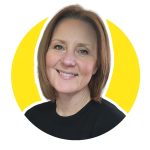
How did you get started in coaching?
My background is in finance. I was working for Aberdeen Asset Management for about 17 years in learning and development, and I was a coach in-house. I got the opportunity to take voluntary redundancy at the end of 2017, and started lightbulb.coach at the start of 2019. So I’m just in my fourth year.
What is your main goal?
To make coaching mainstream for young people. When I was working with executives and senior leaders in corporate organisations, I realised that what I was helping them with was the same struggles that many young people have in their early careers. And I thought, well, why are we not offering this to young people much earlier? So I started working with young people and trying to raise the awareness of coaching and the benefits. I’ve got a broad range of clients, though – basically anyone from the age of nine upwards – which is fantastic.
Coaching really is for everyone. Maybe some people have the idea that it’s only reserved for executives or very senior people, but in today’s world it’s becoming more of a solution for people who just want to make a change, and just need a little bit of an extra help. Coaching is available and affordable.
Is the process of doing coaching for children very different from adults?
Fundamentally, the themes are very similar, but the approach is slightly different. You have to be a little bit more directive with children, so you maybe use a lot more play: things like Lego and creating vision boards. But I use that with adults as well, because we all like to release our inner child sometimes.
So the approach is different, but the topics are very much the same. It’s about building confidence, self-esteem and self-awareness, and understanding our own personal triggers and our barriers and what gets in the way.
Are there many differences between coaching and counselling?
Yes. Coaching is forward-facing: where are you now, where do you want to get to and how can I help you get there? Purely by asking the right questions. Whereas counselling is very much looking into the past and unravelling the events that have brought you to where you are today, and helping you to understand that.
I always compare what I do to sports coaching. Everyone knows that if you want to jump higher, swim faster, run faster, your coach will help you do that. They’ll look at your technique, work out what’s holding you back and try to improve on what you’re already doing.
It’s the same with the coaching I do. It could be something that is holding the person back, like a particular fear or maybe not feeling confident in their ability. You often see imposter syndrome, for example. And coaching involves being really specific about what the goal is, and then working out the steps and strategies to get there.
What are some of the main reasons why people come to you?
For children, it’s through parents. Covid has changed things a lot. It feels like our young people are really struggling to get back into socialising: having the motivation to go back to school clubs or sports.
With adults it might be similar. Or maybe the person wants to change their career, because they’re just really unhappy in what they’re doing, but they don’t know what it is that they do want to do. So they will come to me looking just to explore what their options are, and to come up with more ideas and strategies of how they can make real transformational change in their lives.
People often think that coaches are like cheerleaders, and that’s really not what we’re there to do. We are very much partnering with the person, but we also provide the challenge if there’s a lack of motivation.
What would be a typical amount of time that you would spend with someone?
That’s another difference compared to counselling. I would describe coaching as a short-term solution for long-term gain. You might work with someone for an hour or 90 minutes per month for, say, six to eight months. A lot of the work is done between the sessions. That, I think, is very similar to counselling. But whereas with counselling you might have someone support you for a long period of time, a coach will tend to work with you for a shorter period.
How did you start working with Future Pathways?
Someone got in touch with me to ask about coaching and coach mentoring. They said that they were working with Future Pathways and that I would be a good partner. I’d heard of Future Pathways before, through my work with a number of charities, so I was familiar with what they do.
And it was great to hear that coaching was being embraced. Because within charities, for example, there’s often a counselling service offered, but once you get to the end of that counselling, how do you move forward? You’ve done all of that work to get to where you are now: what is the next chapter? And I think that’s where coaching can really help.
You can find out more about Sarah’s work at lightbulb.coach
For a full list of who we work with, visit our Delivery Partners page.
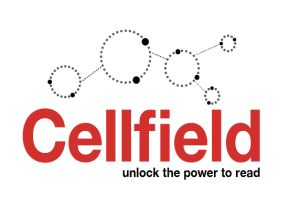
Cellfield helps people to improve their reading skills. We spoke to Fiona Macdiarmid who owns and runs the Cellfield Centre in Stirling.
How did Cellfield start?
It began in Australia, in the late 90s. It was invented by a clever man called Dimitri Caplygin. He was an engineer, and he wondered why so many people still had problems with reading, even when so much had been done to look into and help the issue. So he looked at all the research, and used it to create a computer program.
How does it work?
To be able to read, your brain needs to be able to do lots of different things at the same time. The technical terms are things like “auditory processing”, “visual processing”, “motor function”, “working memory” and “executive function”, but basically it means that your brain has to work in lots of different ways at once.
The program brings together all of those different things, and helps you to get better at each of them, so that they all work together well. That means that your reading skills improve very quickly.
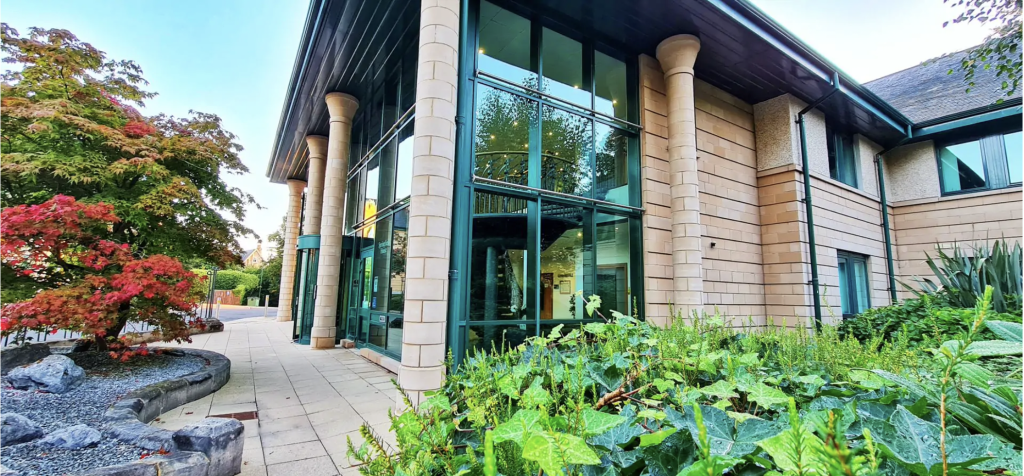
Above: Cellfield Centre in Stirling
How long does the course take?
To start with I’ll talk to the person and discuss exactly what they want help with. That takes about 2 hours, and includes some simple testing to find out how well the person can read. I also tell them how the program works. If they decide they want to go ahead, it is quite a lot of work: about an hour or an hour and a half each day, for 10 days.
After that, we look at how much progress they have made. We then check in with them again 6 months later.
How much better can people get in 10 days?
It depends on a lot of things. But some people improve their reading a little. Others improve it by a huge amount. It’s amazing. I have been working in education for 35 years, and I have never seen anything like it.
A great example is the very first person I worked with using the Cellfield program. He was very smart, and I had already been working with him, using other teaching methods, for 18 months and getting nowhere. I used to say, “If I could just get inside your head and rewire it, we would be onto a winner.” And that is pretty much what the Cellfield program does.
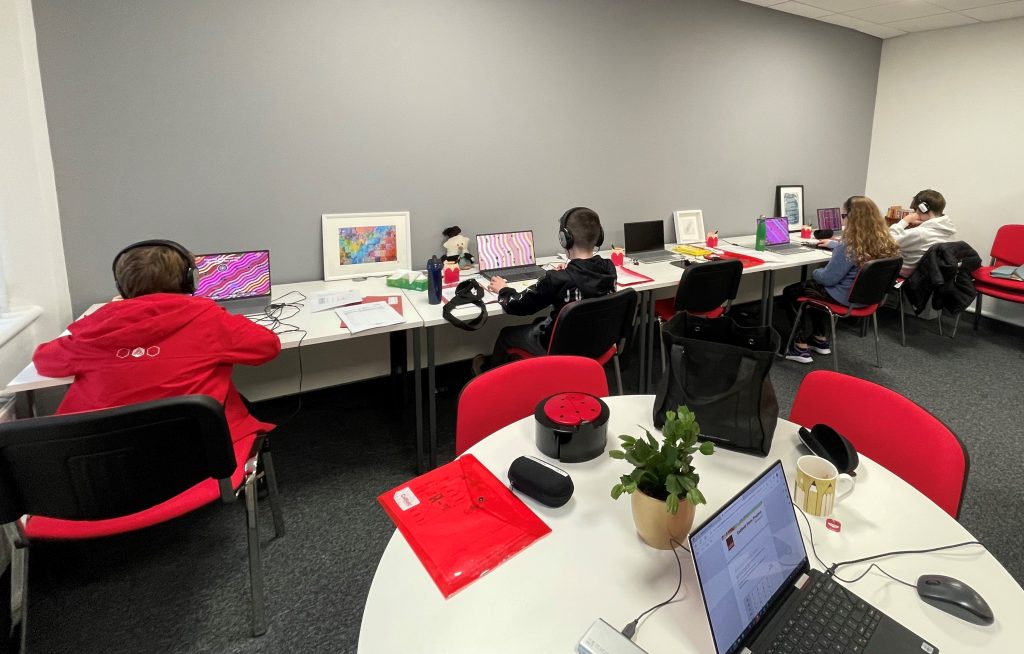
Above: inside the Cellfield Centre
Can you work with anyone?
Yes. I have worked with people who really cannot read at all. I also work with people who can read but find it difficult to remember what they have read.
Are there lots of other Cellfield organisations?
Yes, all over the world. As well as the UK there are centres in South Africa, New Zealand, Australia. There are also centres in America and Canada.
How long have you been worked with Cellfield?
Since 2009. I actually went to New Zealand to do my training with Dmitri.
How did you start working with Future Pathways?
Through a client of mine. His mum worked for Future Pathways, and she told Future Pathways about us. And then Cellfield, the Community Brokerage Network and Future Pathways all worked together to help someone who was registered with Future Pathways. Since then, we have worked with one other person so far.
And can it make a big difference to people’s lives?
Yes, a huge difference. The Cellfield program teaches your brain to work better, and that has lots of other benefits other than just reading. It’s like if you work to get better at running. You would also get a bit better at cycling, rowing, and lots of other things.
And also, of course, because being able to read better is really useful in your life.
You can find out more about the work of Cellfield at www.cellfield.co.uk
For a full list of who we work with, visit our Delivery Partners page.
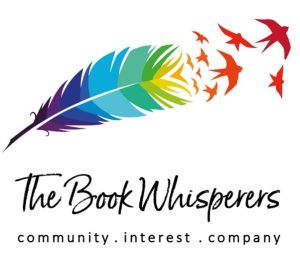
The Book Whisperers is a community of people that helps writers of all kinds to self-publish their work. We have partnered with them on several occasions to help people with assisted memoir writing or to help publish books of poetry or children’s books. We spoke to Mary Turner Thomson, one of the group’s founders and Managing Director of the social enterprise.
What gave you the idea to create The Book Whisperers?
In March 2020, when we knew we were going into lockdown, I sat down with a couple of my author friends and discussed what we could do to help our community. We figured – as authors and publishers – the thing we really could do was to help people spend the time in lockdown writing that book they had always thought of doing. So we created a website, and a free Facebook group, alongside three basic six-week courses in writing.
We put out a call to our friends saying, “If you want to write a book, now might be the time to do that, come and join us to learn how!” We thought about twenty people would join us. Within a week we had about one thousand members.
What services do you provide? How does it work?
We provide whatever the client needs to get going – whether that is brainstorming ideas, writing coaching, ghost writing, editing, layout/design, or publishing support. So it all depends on what the client needs.
So is it mostly for experienced writers?
Not at all. It’s for everyone, at any point in the journey.
How did you and Future Pathways find each other?
Future Pathways heard about what we were doing, so they came to us and said, “We’re working with someone who wants to write his life story.”
My colleague Lea Taylor – Creative Director of The Book Whisperers – worked with him. She would interview him, then write up the note, using his voice and turn of phrase to ensure authenticity. She’d then show him the notes and they’d work on them together. By the end of the process he had a completed biography in his hands.
He said: “Her way of thinking, putting words on a page, forming a sentence – helping me to express myself on all aspects of my life. I never expected this amount of help. To this day I thank my ghostwriter helper and would highly recommend anyone taking one on. Seeing the finished product in print was unbelievable. I had started a project and finished it. When I got my book, I sat down and read it. It made me cry and made me happy and it made me laugh. The combination of all these aspects of a man’s life, everything looked as if my life, all the pieces, slipped into place and at the end of these weary days I’m a very happy chappy.”
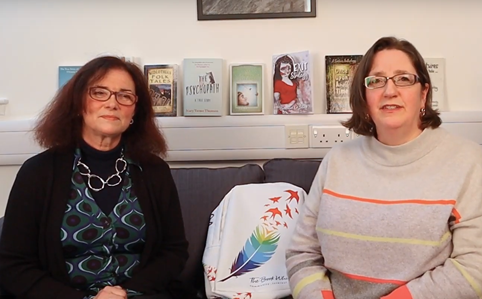
Picture above: Lea Taylor (left) and Mary Turner Thomson (right), Directors of the Book Whisperers
Have you worked with many Future Pathways people since then?
Yes, we have been very lucky to work with quite a few. Every story is different. Even if the client wants a private book for their family and friends (rather than published book for the general public) it is still a very good process to go through.
Do you think that even just the process of writing can be therapeutic?
Absolutely, in lots of ways. Writing helps with communication, self-esteem, self-confidence, concentration, life expectancy, all sorts of things. The benefits – of writing and reading – are absolutely massive, not just for mental health but physical health as well. As you can tell, I’m quite passionate about the subject!
Finally, what are your future plans for The Book Whisperers?
We want to build up the platform, and get a lot of people onto it. By doing that we will be able to source new authors who can work with us. So when people come to us and want to write any particular kind of book, we’ll have an author who specialises in that.
We also want to do writing courses for existing authors and writers, and we’re thinking about doing writing retreats. So we’ve got great plans.
Honestly, it’s my dream job. If I won the lottery, I would still carry on doing this. When you’re doing a job that you love so much you wouldn’t stop even if you become a millionaire, that’s when you know you’re doing the right thing with your life.
Interested in writing? Check out The Book Whisperers’ Top Three Tips for writing your first book.
You can find out more about the project at thebookwhispererscommunity.com.
For a full list of who we work with, visit our Delivery Partners page.
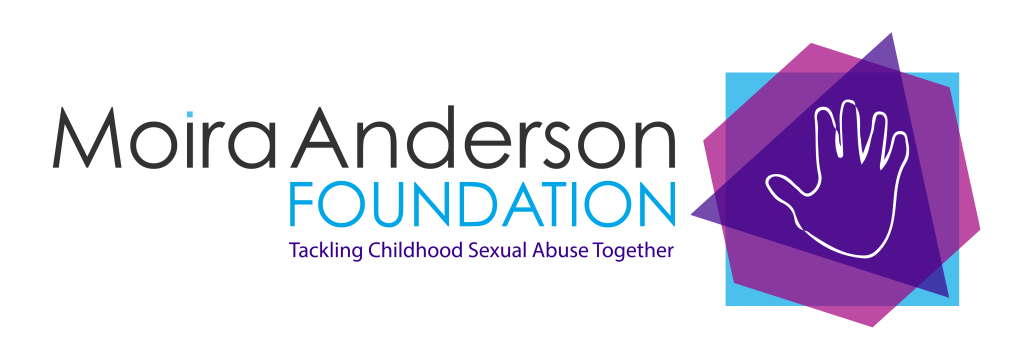
The Moira Anderson Foundation (MAF) serves Scotland from its base in North Lanarkshire. The organisation provides safety and support for adults and children affected by childhood sexual abuse. MAF was one of the first organisations to work with Future Pathways since we began in 2016.
The Foundation offers individual care and support to survivors and their families. It seeks to reduce the impact of trauma in their lives. The Foundation builds trust with survivors. It offers a range of therapeutic services in a safe and caring environment.
The Foundation has a range of different services, including:
Counselling and therapies
These can include talking therapy, youth counselling, art therapy and creative play.
Training and workshops
Their ‘Safe Hands’ training helps to promote personal safety strategies for everyone. The Foundation also does presentations in schools and other places to raise awareness.
Positive Steps
This is a dedicated programme to support adult clients with long-term health problems.
Glasgow Satellite Service (GSS)
This provides support for people in the Glasgow area at different locations, like GP services.
